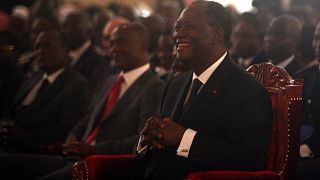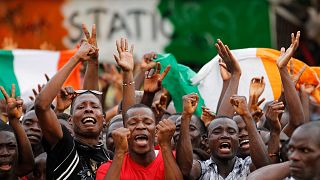Ivory Coast
Ivory Coast is set to go ahead with a referendum for a new constitution after the country’s parliament on Friday voted overwhelmingly in favour of the move. The motion was approved with 233 votes in favour and six against. Seven lawmakers abstained.
Top of the agenda of the new constitution proposed by incumbent president Alassane Ouattara would be to address the controversial nationality clause that contributed to years of unrest and civil war.
As part of the political reforms sought through the referendum, it is believed that Ouattara will be seeking to create the new post of vice-president to take over and complete the president’s term if he were incapacitated or died in office.
Currently, the Speaker of parliament is second in line to the presidency, but the constitution states that new elections must be organised within 90 days, a time frame critics say is unworkable.
The plebiscite is expected to be held in two to three months before parliamentary elections due later this year.
President Ouattara pledged during his campaign for a second term in 2015 to scrap the clause, which states that presidential candidates must prove both their parents are natural-born Ivorians. They must also have never claimed citizenship of another country.
Ivorian nationality became a political issue at the heart of a decade-long crisis that began with a 1999 coup and included a 2002-2003 civil war that split the country in two for eight years.
Ouattara himself was a victim of the nationality issues after he was barred from seeking the presidency over what opponents said were his foreign origins before he finally won election in 2010.
After winning however, his victory sparked a second brief civil conflict that killed more than 3,000 people and the subsequently led to the arrest of his challenger, then incumbent Laurent Gbagbo who is currently standing trial for war crimes and crimes against humanity at The Hague.
The West African nation has long attracted immigrants from neighbouring countries, and the clause became a symbol of exclusion, particularly of northerners whose family ties often straddle regional borders.
However, opposition parties and some civil society groups are against the referendum, arguing that Ivory Coast must make progress towards post-war reconciliation first.
SUGGESTED READING Ivorian opposition coalition oppose Ouattara’s constitutional reforms













Go to video
First Malaria treatment for babies approved
01:09
Liberian president issues official apology to civil war victims
02:21
Ivorian diaspora in Paris demands free and inclusive elections ahead of October vote
01:09
Guinea presents draft for new constitution, referendum set for September
Go to video
Paraguayan town celebrates vibrant Kamba Ra'anga festival with masks, fire and tradition
01:47
Chinese city of Xuchang is world's biggest producer of wigs